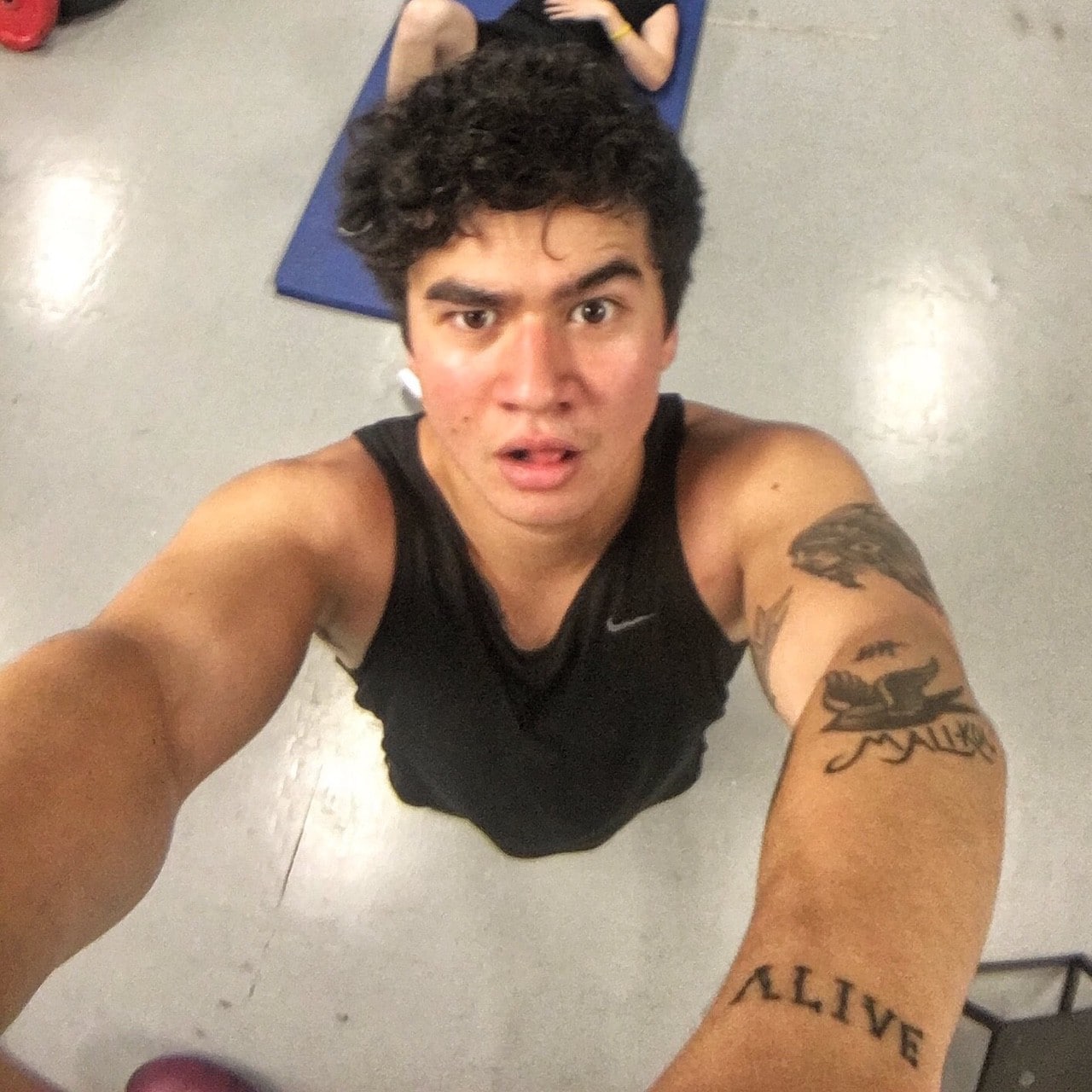The Truth Behind 'Calum Hood Nude' Searches: A Deep Dive Into Celebrity Privacy
The internet is a vast ocean of information, curiosity, and sometimes, unfortunate intrusions into personal lives. One search term that has periodically surfaced, drawing significant attention, is "Calum Hood Nude." This specific query, while seemingly straightforward, opens up a complex discussion about celebrity privacy, the ethics of online content, and the broader implications of digital footprints in the modern age. It's a topic that demands a nuanced approach, moving beyond mere sensationalism to explore the very real human and societal dimensions at play.
Understanding why such search terms gain traction requires an examination of both public fascination with celebrity lives and the pervasive nature of digital information. This article aims to unpack the phenomenon of "Calum Hood Nude" searches, not to validate or distribute private content, but to critically analyze the underlying issues of privacy, consent, and responsibility in an increasingly interconnected world. We will delve into the life of Calum Hood, the ethical dilemmas posed by leaked content, and the vital importance of fostering a respectful and secure online environment for everyone.
Table of Contents
- Calum Hood: A Brief Biography
- Unpacking the Phenomenon of "Calum Hood Nude" Searches
- Celebrity Privacy in the Digital Age: A Constant Battle
- The Profound Impact on Calum Hood and 5 Seconds of Summer
- Fan Culture and the Ethics of Online Fandom
- The Broader Conversation: Online Safety, Consent, and Digital Citizenship
- The Media's Role and Public Perception in Celebrity Scrutiny
- Moving Forward: Advocating for Respect and Ethical Digital Behavior
Calum Hood: A Brief Biography
Before diving into the complexities of online privacy, it's essential to understand who Calum Hood is. Calum Thomas Hood, born on January 25, 1996, is an Australian musician, best known as the bassist and backing vocalist for the pop-rock band 5 Seconds of Summer (often abbreviated as 5SOS). Formed in Sydney in 2011, 5SOS rose to international fame after touring with One Direction in 2013-2014, quickly becoming one of the most prominent bands of their generation.
Calum, alongside bandmates Luke Hemmings, Michael Clifford, and Ashton Irwin, has released multiple successful albums, embarked on global tours, and garnered a massive, dedicated fanbase. His role in the band is integral, contributing to their distinctive sound and energetic live performances. Like many public figures, his life, both professional and personal, has been subject to intense scrutiny, a common byproduct of fame in the digital era. This constant spotlight, while part of the celebrity experience, often blurs the lines between public interest and private life, leading to situations where personal boundaries are inadvertently, or sometimes deliberately, crossed.
Personal Data & Biodata: Calum Hood
| Attribute | Detail |
|---|---|
| Full Name | Calum Thomas Hood |
| Date of Birth | January 25, 1996 |
| Place of Birth | Mount Druitt, Sydney, Australia |
| Nationality | Australian |
| Occupation | Musician (Bassist, Backing Vocalist) |
| Band | 5 Seconds of Summer (5SOS) |
| Genres | Pop Rock, Pop Punk, Pop |
| Instruments | Bass, Vocals |
| Years Active | 2011–present |
Unpacking the Phenomenon of "Calum Hood Nude" Searches
The existence and persistence of search queries like "Calum Hood Nude" are not isolated incidents but rather symptoms of a broader societal fascination with celebrity and the often-unregulated nature of online content. These searches typically stem from various motivations, ranging from genuine curiosity fueled by tabloid culture to more concerning voyeuristic tendencies. The internet's ability to instantly disseminate information, whether verified or not, means that any rumor or leaked content can spread globally within minutes, creating a lasting digital footprint that is incredibly difficult to erase.
When a search term like "Calum Hood Nude" gains traction, it often reflects a moment where private images or videos, allegedly of the celebrity, have been leaked or rumored to exist. This can be a result of hacking, non-consensual sharing by an individual, or even fabricated content. Regardless of the origin, the act of searching for and consuming such content contributes to a culture that normalizes the invasion of privacy, particularly for public figures who are often perceived as having forfeited their right to privacy simply by being famous. The sheer volume of such searches underscores a concerning trend where the boundaries of personal space are increasingly eroded in the digital realm.
Understanding the User Intent Behind Such Queries
The motivations behind searching for "Calum Hood Nude" are multifaceted. Some users might be driven by simple curiosity, having heard rumors and wanting to see if they are true. Others might be fans seeking to feel a closer, albeit inappropriate, connection to their idol. There's also a segment driven by more exploitative intentions, seeking to consume or even redistribute private content. It's crucial to differentiate between these intents, but also to recognize that, regardless of intent, the act of searching for and viewing non-consensual private content has real-world consequences for the individual whose privacy is violated.
The internet, with its perceived anonymity, can embolden individuals to seek out content they might otherwise hesitate to in a physical setting. This disinhibition effect contributes significantly to the prevalence of searches like "Calum Hood Nude." Furthermore, the algorithms of search engines and social media platforms can inadvertently amplify such content, pushing it into the feeds of users who may not have actively sought it out, further complicating the issue of content control and ethical consumption.
Celebrity Privacy in the Digital Age: A Constant Battle
For public figures like Calum Hood, the concept of privacy is constantly under siege. While celebrities often choose to share aspects of their lives with their fans, this does not equate to a blanket waiver of their right to privacy. The digital age has introduced unprecedented challenges to this right, with smartphones, social media, and sophisticated hacking tools making it easier than ever for private moments to become public spectacles. The line between public persona and private individual has become increasingly blurred, leading to a continuous battle for control over one's personal narrative and image.
The expectation that celebrities should have no privacy is a dangerous one, as it sets a precedent that can eventually impact everyone. If the privacy of high-profile individuals can be so easily disregarded, it creates a slippery slope where the personal boundaries of ordinary citizens are also at risk. The "Calum Hood Nude" phenomenon, therefore, serves as a stark reminder of the vulnerability even those with immense resources face when their private information is targeted for public consumption. It highlights the urgent need for stronger digital ethics and robust legal frameworks to protect personal data and images from non-consensual dissemination.
The Legal and Ethical Landscape of Leaked Content
The legal and ethical implications of leaked private content, particularly images and videos of a sexual nature, are severe. In many jurisdictions, the non-consensual sharing of intimate images, often referred to as "revenge porn" or image-based sexual abuse, is a criminal offense. Laws vary globally, but there's a growing recognition of the profound harm caused by such acts, which can include severe emotional distress, reputational damage, and professional setbacks for the victim.
Ethically, the consumption and sharing of content like "Calum Hood Nude" is deeply problematic. It violates fundamental principles of consent, respect, and personal autonomy. Even if the content was initially shared consensually between individuals, its subsequent distribution without the explicit consent of all parties involved is a violation. For content that is hacked or obtained illegally, the ethical transgression is even clearer. Websites and platforms that host or facilitate the spread of such material are often complicit in this violation, raising questions about their responsibility to protect users and uphold ethical standards. The ethical onus also falls on individual internet users to critically evaluate the content they consume and share, choosing not to participate in the exploitation of others' privacy.
The Profound Impact on Calum Hood and 5 Seconds of Summer
While public figures are often seen as resilient to criticism and scrutiny, the personal impact of privacy invasions, such as the circulation of "Calum Hood Nude" rumors or alleged content, can be devastating. Beyond the immediate shock and embarrassment, victims often experience long-term psychological distress, anxiety, and a profound sense of violation. Their trust in others, both within their personal circle and among their fanbase, can be severely eroded. For an artist whose career relies on public connection and performance, such an incident can be deeply unsettling, affecting their ability to engage with fans and the media authentically.
For 5 Seconds of Summer as a band, such incidents can create unwanted distractions, shifting focus from their music and artistic endeavors to personal controversies. While a band's management and public relations teams work tirelessly to mitigate the damage, the digital footprint of such events is nearly impossible to erase entirely. It can also influence how the public perceives the band, potentially overshadowing their professional achievements. Ultimately, incidents like these serve as a harsh reminder that behind the celebrity persona is a human being with feelings, vulnerabilities, and a fundamental right to privacy, regardless of their fame.
Fan Culture and the Ethics of Online Fandom
Fan culture, particularly in the digital age, is a powerful force. Fandoms can be incredibly supportive, creating communities that celebrate artists and provide a sense of belonging for fans. However, the intensity of some fandoms can sometimes cross into problematic territory, blurring the lines between admiration and obsession. The desire for more personal information about idols, or the feeling of entitlement to every aspect of their lives, can inadvertently contribute to privacy invasions. The "Calum Hood Nude" searches are a stark example of how this boundary can be breached, with some fans, or even anti-fans, actively seeking out and sharing private content.
The ethical responsibility within fan communities is paramount. True support for an artist should extend to respecting their personal boundaries and advocating for their well-being, including their right to privacy. Engaging in searches for, or sharing of, private and non-consensual content undermines the very foundation of respect that should exist between artists and their admirers. It's a critical moment for fandoms to reflect on their collective behavior and ensure that their passion translates into positive and respectful interactions, both online and offline.
Cultivating Respect and Responsibility Within Fandoms
Promoting ethical behavior within fan communities requires active participation from both fans and the artists themselves. Education is key: informing fans about the legal and emotional harm caused by privacy invasions can foster a more empathetic environment. Fan leaders and influential community members can play a crucial role in setting positive examples, discouraging the spread of private content, and advocating for respectful online conduct. Platforms where fans interact also bear a responsibility to provide tools and guidelines that help maintain healthy boundaries.
For artists like Calum Hood, engaging with fans about these issues, perhaps through thoughtful social media posts or public statements, can also help shape a more responsible fan culture. While it's not their burden to bear alone, their voice can significantly influence the collective consciousness of their followers. Ultimately, fostering a culture of respect means understanding that a celebrity's public image does not grant anyone permission to violate their private life, and that true fandom is built on admiration and support, not intrusion.
The Broader Conversation: Online Safety, Consent, and Digital Citizenship
The "Calum Hood Nude" phenomenon is more than just a celebrity issue; it's a microcosm of broader challenges related to online safety, consent, and digital citizenship that affect everyone. In an era where personal data is constantly collected and shared, understanding how to protect one's privacy and what constitutes ethical online behavior is more critical than ever. The internet, while offering incredible opportunities for connection and information, also presents significant risks, from data breaches to cyberbullying and the non-consensual sharing of intimate content.
Consent, in particular, is a cornerstone of ethical digital interaction. Just as consent is vital in physical interactions, it is equally important online. Sharing someone's image or personal information without their explicit permission is a violation of their autonomy and privacy. This applies not only to intimate content but to any personal data that an individual has not consented to be publicly shared. Developing strong digital citizenship means understanding these principles and applying them consistently in all online activities, recognizing that our actions in the digital realm have tangible impacts on real people.
Practical Steps for Protecting Privacy Online
While no system is foolproof, individuals can take several practical steps to enhance their online privacy and reduce their vulnerability to privacy invasions:
- Strong Passwords and Two-Factor Authentication (2FA): Use unique, complex passwords for all accounts and enable 2FA wherever possible. This adds an extra layer of security against unauthorized access.
- Review Privacy Settings: Regularly check and adjust privacy settings on social media platforms, email, and other online services. Limit who can see your posts, photos, and personal information.
- Be Mindful of What You Share: Think twice before posting personal information, photos, or videos online. Once something is on the internet, it's incredibly difficult to remove entirely.
- Be Wary of Phishing and Scams: Be suspicious of unsolicited emails or messages asking for personal information or login credentials.
- Secure Your Devices: Use passcodes, biometric locks, and up-to-date antivirus software on your smartphones, tablets, and computers.
- Understand Consent: Never share someone else's private images or information without their explicit, enthusiastic consent. If you receive such content, do not forward it.
- Report Violations: If you encounter content that violates someone's privacy or depicts non-consensual sharing, report it to the platform immediately.
The Media's Role and Public Perception in Celebrity Scrutiny
The media, both traditional and digital, plays a significant role in shaping public perception and often in amplifying or condemning privacy invasions. Tabloid journalism, in its pursuit of sensational stories, can inadvertently contribute to the demand for private celebrity content. The rapid-fire nature of online news and social media means that rumors and leaked content can gain immense traction before any official verification or ethical consideration. This creates a challenging environment where facts can be distorted, and privacy can be easily trampled in the race for clicks and engagement.
Responsible journalism, however, has a critical role to play in counteracting this trend. Reputable news outlets and ethical journalists should refrain from reporting on or linking to illegally obtained private content. Instead, they can focus on the broader societal implications of privacy invasions, educate the public about digital ethics, and advocate for stronger protections for individuals. By choosing not to sensationalize such incidents, the media can help shift public perception away from voyeurism and towards a greater respect for personal boundaries, even for those in the public eye. The way the media frames incidents like "Calum Hood Nude" directly influences how the public discusses and reacts to them, underscoring their immense responsibility.
Moving Forward: Advocating for Respect and Ethical Digital Behavior
The phenomenon of "Calum Hood Nude" searches, and similar instances involving other public figures, serves as a powerful reminder of the ongoing struggle for privacy in the digital age. It highlights the urgent need for a collective shift in how we, as internet users, interact with online content and perceive the boundaries of public and private life. Moving forward, the emphasis must be on fostering a culture of respect, consent, and ethical digital citizenship for everyone, not just celebrities.
This means educating ourselves and others about the profound harm caused by privacy violations, understanding the legal frameworks designed to protect individuals, and actively choosing not to participate in the dissemination of non-consensual private content. It also involves holding platforms and media outlets accountable for their role in either protecting or exploiting personal information. Ultimately, the internet's future as a safe and respectful space depends on the collective commitment of its users to uphold ethical standards and advocate for the fundamental right to privacy for all.
Conclusion
In conclusion, the search term "Calum Hood Nude" is far more than just a fleeting online trend; it represents a significant intersection of celebrity culture, digital privacy challenges, and the ethical responsibilities of internet users. We've explored Calum Hood's background, delved into the complex motivations behind such searches, and critically examined the profound impact of privacy invasions on individuals and the broader implications for online safety and consent. The constant battle for celebrity privacy in the digital age underscores a universal vulnerability, reminding us that respect for personal boundaries is paramount, regardless of an individual's public profile.
It is imperative that we, as a collective online community, strive to cultivate an environment rooted in respect, empathy, and digital responsibility. By understanding the ethical and legal ramifications of consuming and sharing private content, and by actively promoting consent and privacy in all our online interactions, we can contribute to a safer, more humane internet. We encourage you to reflect on your own digital habits, share this article to spark further discussion, and consider how you can be a part of the solution in protecting personal privacy online. Your actions, no matter how small, contribute to the larger narrative of digital citizenship.

Calum Hood Wallpapers - Top Free Calum Hood Backgrounds - WallpaperAccess

Calum Hood Nude Snapchat Pics! - Leaked Men

Calum Hood - Calum Hood Wallpaper (38979177) - Fanpop